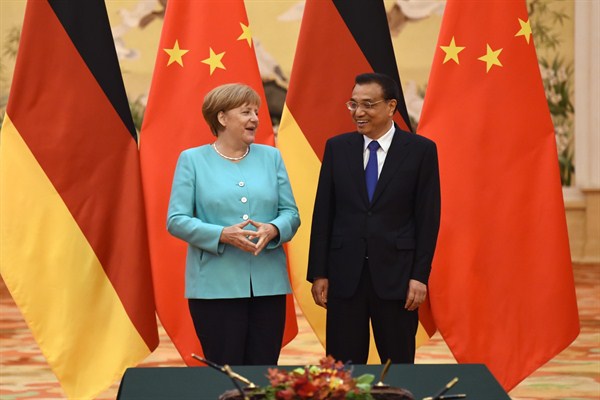German Chancellor Angela Merkel was in China earlier this month, her ninth trip there since taking office, to discuss trade relations, rule of law concerns and the South China Sea disputes. In an email interview, Klaus Larres, a professor at the University of North Carolina, discussed Germany’s ties with China.
WPR: How have Germany’s economic and political ties with China evolved since Merkel came to office, and in what areas are both sides looking to expand ties?
Klaus Larres: Since the 1980s, under Chancellors Helmut Kohl and Gerhard Schroeder, ties between China and Germany have become increasingly close. Schroeder traveled to China six times in his seven years in office from 1998 to 2005, and he established a strategic partnership with Beijing and deepened trade relations. This trend has continued and intensified since Angela Merkel came to office in 2005. Last year, bilateral trade between Germany and China rose by an impressive 5.5 percent. China continues to be Germany’s fourth-largest export destination, and almost 9 percent of all of Germany’s imports come from China. Almost one-third of all European Union trade with China is conducted between Berlin and Beijing.

